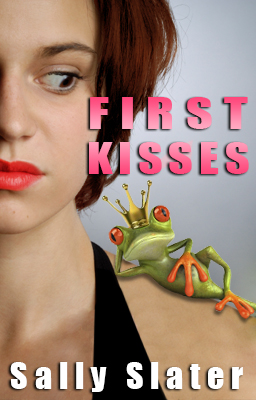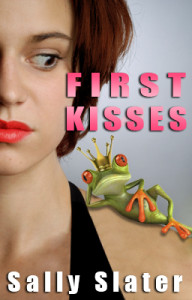At the time of me writing this post, it has been a full two months and one week since my debut novel Paladin was officially published. For the past three years, publishing Paladin has been my dream, so to have my dream finally become a reality is…well, surreal.
I really didn’t know what to expect when I made the official transition from writer-for-fun to published author. Would anyone actually buy my book? (Besides my mother…I was pretty confident she’d grab a few copies.) Would the people who already read Paladin on Wattpad be interested in re-reading the published version? How would people outside Wattpad like Paladin? Did my writing stack up compared to other authors who pursued a more traditional path to publication?
You know, it’s funny – a million years before I ever gave becoming a writer a thought, I wanted to be an actress. That – not writing – was my dream for more than a decade. I even chose my university specifically for its theater program, and was deadset on becoming a star of the stage. And then I realized I just couldn’t hack it in the cutthroat world of acting. I didn’t want to face rejection a hundred thousand times. I didn’t want to remain forever undiscovered in the endless pool of acting talent.
And so I went corporate, working a job where I knew if I put X hours in and contributed Y amount of effort, I was guaranteed success. I was successful in my corporate career, and for a while, that was enough. But that same creative part of me that had loved acting and making music languished, underused, and I knew something was missing from my life. That’s when I discovered Wattpad, and writing fiction.
But in entering the world of published writing, I found myself in a not-so-unfamiliar position. The gatekeepers to traditional publishing are agents – much like in acting, where you need an agent to score an audition. And writers face rejection everyday – from literary agents, from publishers, from reviewers. There are hundreds of millions of stories out there waiting to be read – and no guarantee yours will ever make it past friends and family. Isn’t wanting to be a novelist every bit as farfetched as dreams of acting?
And yet I don’t feel the way about writing that I did about acting. Maybe it’s because my publishing experience has been so positive, but I think my attitude has changed and priorities have shifted. I believe in my writing far more than I ever did in my acting and singing skills. And even if no one had bought a single copy of Paladin, I would be proud of it. I wrote a whole friggin’ novel and I’m twenty-six. No, it’s not perfect. Yes, I have a lot left to learn. But I poured my heart and soul into that book and worked on it for four years to make it the best I could. A million rejection letters and bad reviews could never take that away from me.
I don’t want to say I got lucky (although I’m sure luck played some part) because I busted my butt for every single copy that has been sold. And that has been far more copies than either my publisher or I anticipated. Paladin sold 5,000 copies in its first month, which is practically unheard of for an indie book. It’s been sitting pretty as an Amazon #1 bestseller in a few different categories. Needless to say, when I saw Paladin climbing in the Amazon rankings, I was dumbfounded.
I think a lot of writers (myself included, prior to publication) labor under the misimpression that publishing is the big send-off at the end of a few years on the job. But in reality, the hard work just begins with publication – at least in the indie and small publishing world. I’ve spent just as many hours a day on promoting Paladin – writing social media posts, interacting with readers, begging reviewers to give the story a shot, liaising with other authors, contributing articles to other websites, participating in events to raise awareness – as I did on writing the damn thing. And that’s with the marketing support of my publisher.
I’m really very fortunate, because my day job is in marketing and public relations. I’ve been able to leverage a lot of what I’ve learned from promoting clients to promote myself. I’m not afraid to reach out to total strangers and say, “Hi there, I think you might enjoy my book because of XYZ reason.” For every ten emails I send, I get one response, but hey, I’ll take it.
And then, of course, I have my secret weapon behind me: Wattpad. Did I expect every reader on Wattpad to buy a copy? Absolutely not – not everyone has the means or the ability, or even the desire to purchase a story they’ve read already, albeit a heavily edited version. A lot of Wattpad readers did buy copies – but most importantly, they talked about Paladin, reviewed it and recommended it to their friends. Wattpad HQ also showed their support, giving me opportunities to talk about Paladin in public forums and helping to promote the book. Despite being a debut indie author, I got to make my foray into the publishing world with a whole lot of buzz behind me.
That isn’t to say my publishing experience has been nothing but puppies and rainbows. I’ve received some bad reviews, and there’s no denying they sting. Sometimes reviewers make criticisms that I think are unfair or off base – but because I’m dealing with reviewers outside the Wattpad environment, where dialogue is encouraged, I have to keep my big mouth shut. That’s not always easy. But at the end of the day, I’ve received far more positive reviews than bad, and even the critical reviews have provided me with worthwhile notes to bear in mind for the sequels.
Ah yes – the sequels! In the last two months, I haven’t made nearly as much headway as I wanted on book two. As much as I’ve enjoyed all the craziness that comes with publishing, I’m ready to get back to focusing on the Paladin sequel. I know my publishing journey is far from over, but I can’t ever forget the most important part of publishing a story is writing a good one.




